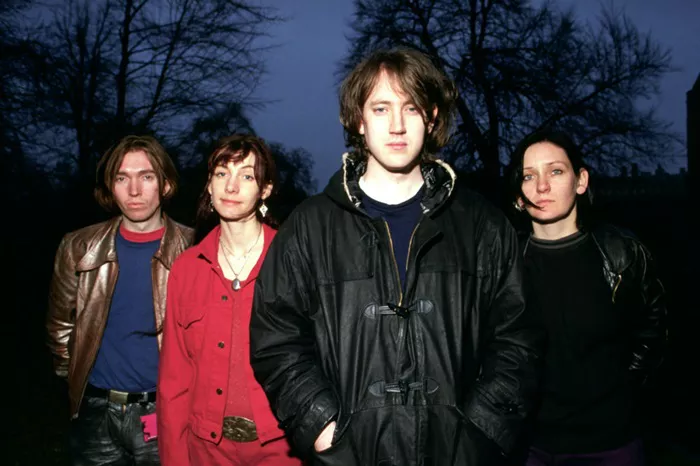Dream pop is a subgenre of alternative rock and neo-psychedelia characterized by its ethereal soundscapes, hazy vocals, and introspective lyrics. Emerging in the mid-1980s, it has since captivated listeners with its atmospheric quality and emotional depth. This article delves into the origins, characteristics, notable artists, and impact of dream pop music, offering a comprehensive understanding of this enchanting genre.
1. Origins of Dream Pop
The 1980s: A New Sound Emerges
Dream pop’s roots trace back to the mid-1980s, a period marked by musical experimentation and the blending of genres. The genre evolved from the post-punk and neo-psychedelia movements, with bands seeking to create a more atmospheric and textured sound. Key influences include the lush soundscapes of 1960s psychedelia and the minimalism of early 1980s post-punk.
Cocteau Twins and 4AD Records
A significant milestone in the development of dream pop was the formation of the Cocteau Twins in 1979. Their use of reverb-heavy guitars, unconventional song structures, and Elizabeth Fraser’s ethereal vocals set the template for the genre. 4AD Records, the band’s label, played a crucial role in promoting dream pop, with its roster including other seminal acts like This Mortal Coil and Dead Can Dance.
2. Characteristics of Dream Pop
Ethereal Soundscapes
The hallmark of dream pop is its ethereal, almost otherworldly sound. This is achieved through extensive use of reverb and delay effects, creating a sense of vastness and depth. Guitars often employ shimmering, chiming tones, while synthesizers and ambient textures add to the atmospheric quality.
Hazy Vocals and Introspective Lyrics
Vocals in dream pop are typically soft, breathy, and sometimes buried in the mix, contributing to the dreamy ambiance. The lyrics are often introspective, exploring themes of love, longing, and existential reflection. The vocal delivery, combined with the music, evokes a sense of intimacy and melancholy.
Minimalist Rhythms
Dream pop tends to favor minimalist and understated rhythms. Drumming is often simple and subdued, serving to complement rather than dominate the music. This approach allows the melodic and atmospheric elements to take center stage.
3. Notable Dream Pop Artists
Cocteau Twins
As pioneers of the genre, the Cocteau Twins are perhaps the most iconic dream pop band. Albums like “Treasure” and “Heaven or Las Vegas” are considered masterpieces, showcasing the band’s ability to create immersive sonic landscapes.
My Bloody Valentine
While often categorized as a shoegaze band, My Bloody Valentine has significantly influenced dream pop. Their 1991 album “Loveless” is renowned for its innovative use of guitar effects and production techniques, blending noise and melody in a dreamlike fashion.
Beach House
Formed in 2004, Beach House has become one of the most successful and critically acclaimed dream pop bands of the 21st century. Their lush, melancholic sound is evident in albums like “Teen Dream” and “Bloom,” which feature rich arrangements and evocative lyrics.
Mazzy Star
Mazzy Star’s music, particularly their hit “Fade into You,” embodies the dreamy, introspective qualities of the genre. The band’s blend of folk, blues, and psychedelia, combined with Hope Sandoval’s haunting vocals, has left a lasting impact on dream pop.
4. Impact and Influence of Dream Pop
Cross-Genre Influence
Dream pop has influenced a wide range of genres, from indie rock to electronic music. Its emphasis on atmosphere and texture can be heard in the work of artists like M83, who blend electronic and shoegaze elements, and Tame Impala, whose psychedelic rock has a dreamlike quality.
Cultural and Aesthetic Impact
Beyond its musical influence, dream pop has also impacted visual and cultural aesthetics. The genre’s ethereal and nostalgic qualities often translate into album artwork, music videos, and fashion, contributing to its distinct identity. The visual component often features muted colors, abstract imagery, and a sense of timelessness, mirroring the music’s dreamy ambiance.
Continuing Evolution
Dream pop continues to evolve, with contemporary artists pushing the boundaries of the genre. Bands like Cigarettes After Sex and Alvvays incorporate modern production techniques while maintaining the core elements of dream pop. The genre’s ability to adapt and innovate ensures its enduring relevance in the music landscape.
5. The Future of Dream Pop
Embracing Technology
As technology advances, dream pop artists are likely to experiment with new tools and production methods. The genre’s affinity for creating immersive soundscapes makes it well-suited to explore virtual reality and spatial audio, offering listeners even more immersive experiences.
Global Influence
Dream pop’s appeal is not confined to any single region. Its universal themes of emotion and introspection resonate with audiences worldwide. As more artists from diverse cultural backgrounds embrace the genre, they bring unique perspectives and sounds, enriching the dream pop landscape.
Interdisciplinary Collaborations
Collaborations between dream pop musicians and artists from other disciplines, such as film, visual art, and literature, are likely to become more common. These interdisciplinary projects can create multi-sensory experiences that enhance the genre’s ethereal and introspective qualities.
See Also: How Did Soca Make Its Way to Pop Music?
Conclusion
Dream pop is a genre that transcends time and space, inviting listeners into a world of ethereal soundscapes, hazy vocals, and introspective lyrics. From its origins in the post-punk and neo-psychedelia movements to its contemporary incarnations, dream pop has continually evolved while maintaining its core elements. Its impact on music and culture is profound, influencing a wide range of genres and artistic expressions. As dream pop continues to embrace new technologies and global influences, it promises to remain a captivating and innovative force in the music world.

